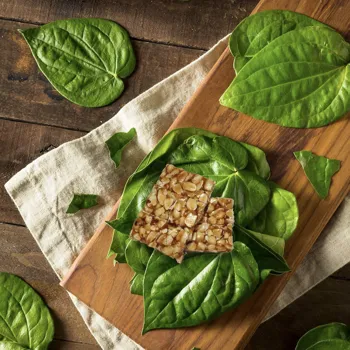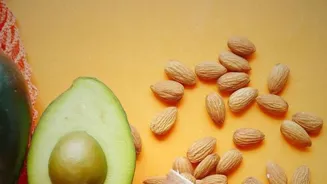Unlock Your Brain's Potential with 7 Essential Nutrients! Dive into how Indian diets can boost brain health. Read more
Our brains, the command centre of our bodies, are constantly working. From remembering
our chaiwala's name to solving complex office problems, they power our daily lives. Just like our bodies need the right fuel, our brains thrive when nourished with essential nutrients.
But what exactly are these brain-boosting nutrients, and how can we easily incorporate them into our Indian diets? Let's find out!
Omega-3 Fatty Acids: The Brain's Building Blocks
Think of Omega-3 fatty acids as the architects behind a strong and healthy brain. These essential fats, particularly DHA (docosahexaenoic acid), are vital for brain cell structure and function.
DHA makes up a significant portion of our brain tissue, influencing memory, learning, and overall cognitive performance. Sadly, our bodies can't produce Omega-3s on their own, so we must obtain them through our food.
Excellent sources readily available in India include flaxseeds (alsi), chia seeds and walnuts (akhrot). Sprinkle flaxseeds on your poha, add chia seeds to your lassi, or enjoy a handful of walnuts as an evening snack to reap the benefits.
Including these regularly might help in better concentration.
B Vitamins: The Brain's Energy Boosters
The B vitamins, a family of eight essential nutrients, play a crucial role in energy production within the brain. They help convert food into fuel, keeping our brain cells energized and functioning optimally.
Vitamin B12, in particular, is essential for nerve function and the formation of red blood cells, which carry oxygen to the brain. Deficiencies in B vitamins can lead to fatigue, poor concentration, and even cognitive decline.
Fortified breakfast cereals are a convenient way to boost your B vitamin intake. These vitamins are essential for better memory.
Choline: The Memory Messenger
Choline is a nutrient that is crucial for the production of acetylcholine, a neurotransmitter involved in memory, muscle control, and mood. It's like the messenger delivering important information between brain cells.
While our bodies can produce some choline, it's often not enough, making dietary intake essential. Good sources of choline include soyabean, peanuts and quinoa. For a choline-rich breakfast, consider soyabean poha or having peanuts with your morning coffee.
Vitamin E: The Brain's Protector
Sunlight, stress, and pollution can create free radicals that damage brain cells. Vitamin E acts as a powerful antioxidant, fighting off these free radicals and protecting our brain from oxidative stress. Think of it as a shield safeguarding your brain from harm.

Almonds, sunflower seeds (surajmukhi ke beej), and spinach are excellent sources of Vitamin E. A handful of almonds or a spinach-rich sabzi can contribute to a healthier brain. They also improve cells in the brain.
Magnesium: The Brain's Relaxant
Magnesium plays a vital role in hundreds of bodily functions, including brain function and mood regulation. It helps regulate nerve transmission and protect against excessive excitation, promoting a sense of calm and relaxation. Think of it as a calming influence on your brain.
Spinach, pumpkin seeds and dark chocolate are good sources of magnesium. A simple spinach salad or a few squares of dark chocolate (in moderation!) can help boost your magnesium levels. Magnesium is an element that helps in relaxing your brain.
Zinc: The Brain's Communicator
Zinc is an essential mineral involved in numerous brain processes, including neurotransmitter function and cell signaling. It plays a crucial role in how brain cells communicate with each other. Zinc deficiency can impair cognitive function and memory.
Cashews, chickpeas and lentils are good sources of zinc. Enjoy a handful of cashews as a snack, add chickpeas to your chole, or include lentils in your daily dal to increase your zinc intake. This helps in better communicating.
Curcumin: The Brain's Anti-Inflammatory Agent
Curcumin, the active compound in turmeric (haldi), has powerful anti-inflammatory and antioxidant properties. Inflammation in the brain can contribute to cognitive decline, and curcumin helps combat this inflammation. It also supports the growth of new brain cells.
Add turmeric to your cooking -- dals, sabzis, and even a warm glass of milk (haldi doodh) -- to reap the benefits of curcumin. This also helps in better cognitive functions of the body.
Our brains are precious and deserve the best possible care.
By incorporating these seven essential nutrients into our diets, we can support optimal brain health, improve cognitive function, and protect our brains from age-related decline.
Simple changes in our food habits can have a big impact on the well-being of our brains, allowing us to think better, remember more, and enjoy a sharper, healthier life! Remember to consult with a doctor or registered dietitian for personalized dietary advice.
A Final Thought.
Focusing on a balanced diet filled with nutrient-rich foods is key for your well-being. These nutrients not only keep your brain healthy but also improve your overall well-being. Incorporating nutrient-dense eating patterns can greatly impact your potential to have a healthier and happier future.
AI Generated Content. Glance/InMobi shall have no liability for the content


















